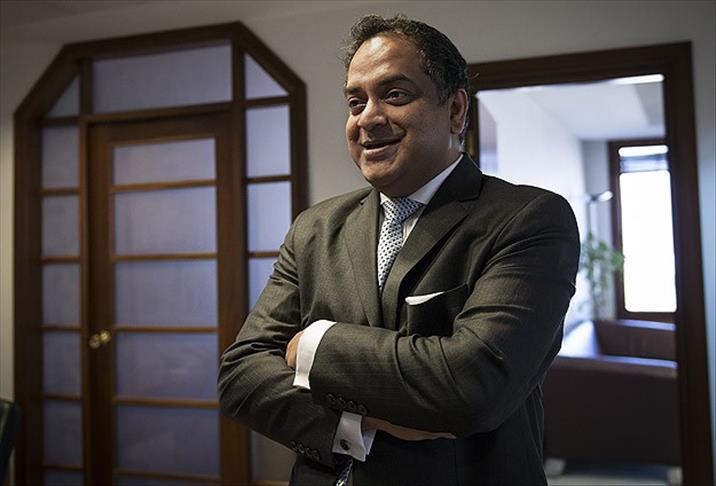
LONDON
By Gökhan Kurtaran
It is time for another economic leap forward, IMF Senior Resident Representative in Turkey, Srikant Seshadr, said on Wednesday.
Speaking in an exclusive interview with the Anadolu Agency, Seshadri said that Turkey’s long term economic potential is bright thanks to an “extraordinary combination of assets” including a large and dynamic economy, favorable demographics and an entrepreneurial culture.
These assets will all enable Turkey to replicate its success following its 2001 crisis, he believes.
“The remarkable transformation of the economy since the 2001 crisis not only testifies to these great assets, but also to the correct diagnosis, sequencing, and implementation of policies,” he said.
These policies ranged “from the first wave of structural reforms in the economy, to the improvement of public finances, to the rebuilding of the banking sector, and just as importantly, a significant period of low inflation,” Seshadri added.
However, he pointed out that due to the tapering of quantitative easing, anticipated interest rate hikes from the US Federal Reserve and a slowdown in global growth prospects, Turkey’s growth momentum and expectations slowed down to the 3-3.5 percent range.
In order to make another leap forward, “there are three central and inter-related priorities: first, another wave of structural reforms is needed to raise productivity and education, as well as to improve the investment environment,” he said.
“Second, determined efforts are necessary to increase both public and private saving to raise growth and reduce dependence on foreign saving to finance investment. And third, the more recent upward drift in inflation needs to be reversed,” he added.
Stressing that Turkey has two major challenges to undertake in order to reach its ambitious 2023 economic goals, Seshadri said that the current account deficit problem should be addressed by reducing the need for external financing.
Inflation should also be pulled down towards the 5 percent target, he added.
“Our year-end inflation forecast for 2014 stands at 9 percent, above the official target of 5 percent -- which, in our view, is appropriate for the Turkish economy,” Seshadri said. “We do expect inflation to come down to about 7.1 percent next year, and if current oil price falls are sustained, this could also help further.”
Regarding Gross Domestic Product growth, Seshadri said that he expects Turkey to grow by 3 percent this year, driven mainly by public sector demand and a mild revival in private consumption in the later part of the year.
For 2015, he shared similar ranged growth estimations of between 3-3.5 percent, with a larger contribution coming from domestic demand.
“In order to raise potential growth back towards the rates observed over the course of the last decade, smooth execution of the authorities’ planned macroeconomic policy adjustments and completion of the structural reform agenda will be essential,” he said.
“We wish the authorities the very best in these endeavors and will support the authorities in whatever way we can," he concluded.
Srikant Seshadri, who has extensive experience covering economic, financial and policy issues in advanced and emerging economies, took up the position of IMF Senior Resident Representative in Turkey in August 2014.
Anadolu Agency website contains only a portion of the news stories offered to subscribers in the AA News Broadcasting System (HAS), and in summarized form. Please contact us for subscription options.

